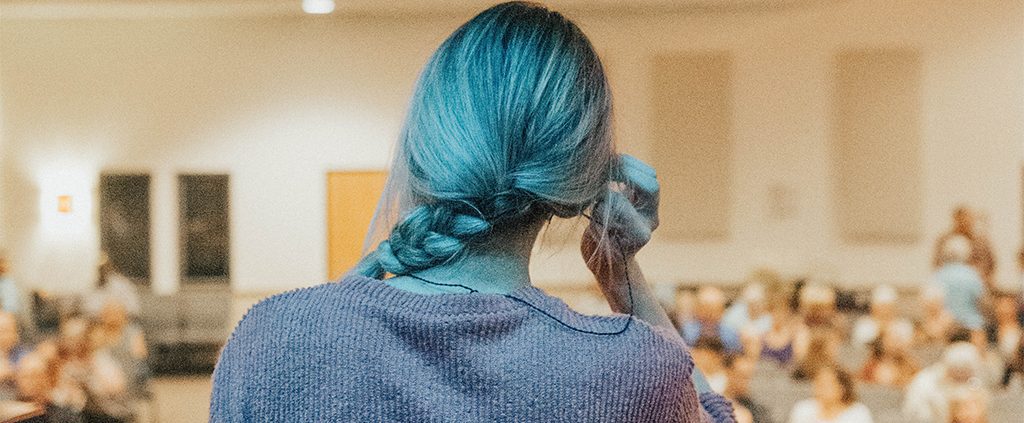Why We Shouldn’t Stay Silent About the Uyghur Camps
It was 10 months post 9/11. I was 16 years old when I first landed in Xinjiang, China for a mission trip. I had no idea then what the trip would hold. I did not know that I would fall in love with the Uyghur Muslims, and that I would come back—a total of four times—to this land that I loved.
I’ll always remember my connection with a little orphan girl I met there. Against all odds, God would graciously allow me to be united with my sweet friend four times in a span of eight years. But it was not just the people; it was the land too. I’ll never forget the huge expanse of a sunflower field across the street from the orphanage we visited. I’d never seen anything so vast and beautiful; this people and this land had captured me.
When we first arrived, we were taken to a welcome dinner. I walked into a ballroom filled with bright and beautiful colors—the apparel, the food, the decorations. It was a sight to behold. The Uyghur people made me feel more at home in China that night than I ever thought I could. There they were, with arms open, smiles wide, so excited to show us around their homeland. Almost immediately, I realised that they were not so foreign after all; they were just like me.
I’d heard the rumblings of trouble in this area for the last few years; I knew there was tension between the Han Chinese and Uyghur Muslims. But it was only recently that a friend on social media informed me about the most recent reports. When I saw them, my heart broke.
That night, as I read the reports, I also received a quote by Dietrich Bonhoeffer from another friend; it was in response to a different situation, yet it spoke loud and clear to what I had just read about the Uyghur Muslims: “Silence in the face of evil is itself evil . . . Not to speak is to speak. Not to act is to act.”
God used this friend, and the words of this martyred theologian, to convict me to use my (written) voice to speak out against this injustice the Uyghur people are facing.
Xinjiang is a province in Northwest China, near Mongolia. For years, Han Chinese and Uyghur Muslims have coexisted in this region, albeit with a long history of conflict. In the last several years though, due to a series of riots, followed by terrorist attacks by Uyghur Separatists, the Chinese government began detaining Uyghurs and placing them in “reeducation camps.”
Since then, there have been reports regarding the conditions of these camps and the actions taking place within them. Multiple accounts speak of the indoctrination and forced labor, and more alarmingly, the systematic sexual abuse of women taking place within the camps—gang rapes, torture, forced sterilizations, and more.
Thinking about this puts me at a loss for words. I know the names and faces of several Uyghur women, and I am grieved in my bones, sick to my stomach, imagining the atrocities they may now be facing.
But what can I do? I’m just one person. Yes, I can sign petitions—such as this one on Change.org asking China to respect the rights of Uyghurs or lose the Games, and perhaps I can write to my senator. But as much as I hope these measures will amount to something, and that governments will intercede; that this crime against humanity will be stopped, and that justice will reign, ultimately, I know that my hope is not in governments or any other human effort. My hope is in Christ—in what He has done for us and what He commands us to do until His return.
And so I’ve begun to think not only about the responsibility of the international community, but more importantly, the responsibility of the Church. While I may be just one person, with one voice, I hope that my voice can be joined by thousands and thousands of other voices.
Here are a few options we can consider:
One: Be informed
It’s simple, but being informed yourself, and then informing others is of incredible value. So many people don’t even know this is happening. Read through a few sources (here and here) on the subject. The Uyghur Human Rights Project is also a good place to stay up-to-date.
Two: Understand why we should speak up
We see in Scripture an abundance of teaching that concerns us here. At the beginning, we see an affirmation of all humanity, created in the imago dei, the image of God (Genesis 1:26). Our collective status as image bearers of God affords basic dignity and respect for each person. The psalmists, with this imago dei in mind, wrote of justice (Psalm 33:5), and the prophets called for it (Isaiah 1:17). In Jesus’s day and time, we saw Him warn of the importance of not neglecting justice (Luke 11:42).
And so, Church, I believe we have some responsibility here to carry on this theme. As Proverb 31:8-9 says, “Open your mouth for the mute, for the rights of all who are destitute. Open your mouth, judge righteously, defend the rights of the poor and needy.” And one simple way we can open our mouths and defend the rights of those who are needy, is to make our voices heard through petitions and writing to our senators/government authorities.
Three: Pray—individually and with your community
I cannot underscore the importance of this. Prayer is one of our most formidable weapons against the enemy and the injustice he wields. Praying about this is no small thing. Sometimes, we may think of prayer as a last resort, but instances like this show us that prayer is the best recourse. What is beyond our means is well within God’s power. And as we grieve, we must go back to who God is and remember that this injustice grieves Him as well, and that He is the God of justice.
Oftentimes, in the face of such wrongdoing we are at a loss for words, and so consider the following prayer that may help put to words the ache of our hearts.
God of all Creation, God of Justice, God of Peace, we ask in your powerful name for the deliverance of our fellow image-bearers.
Let your will be done on earth, as it is in heaven.
Jesus, in your name, we ask for an inexplicable awareness of your presence and nearness to those who are suffering this violence. In the midst of the terror, confirm your love for them. Settle in their spirits the affection and desire that you have for them.
Raise up Christians inside the camps that would boldly speak truth and encouragement to those who are suffering. Reveal yourself to them, call them to a more true and more full understanding of you, Christ, and your Spirit.
It might be easy to pray just one time and ‘move on’—go back to our usual ‘laundry list’ and daily concerns. But it’s these situations that call us out of our comfort zones and move us to think about God’s kingdom. Let’s be intentional in praying for issues like this. Let’s bring it to our own churches, our small groups. Let us think beyond our daily needs and intercede for these people who need Jesus.
The truth is, this is not the only injustice in the world right now. You may know of some other injustice, and it could be on a smaller scale, yet just as evil and atrocious. There may be some other cause that is dear to your heart, as this one is to mine.
As Paul says in Romans 8, all creation is groaning. We are aching, bone-weary and wrestling, longing for the coming of our King. Our hope is knowing that He will return, that He has the victory over the forces of evil in our world, and that He will, in His power and in His time, set the world right. Until then, let us not be silent; let us continue to mourn and speak out, “to act justly and to love mercy and to walk humbly with [our] God” (Micah 6:8).










Ashley, Thank you so muchh for such a meaningfull writing. I didn’t even know this existed. I will join with you in prayer for them.